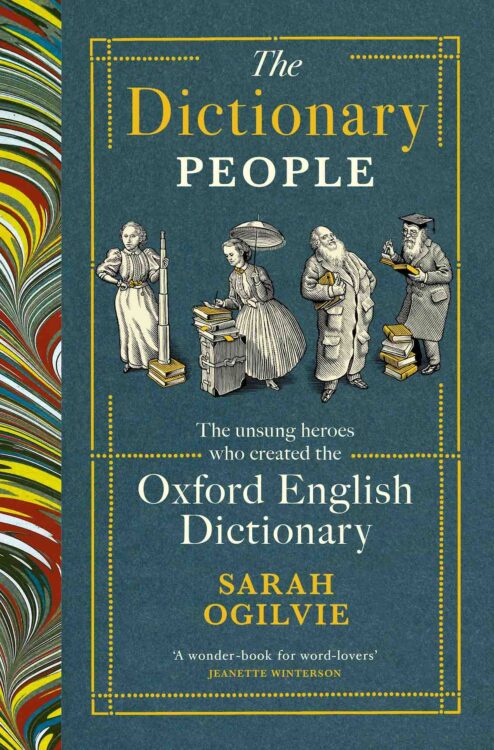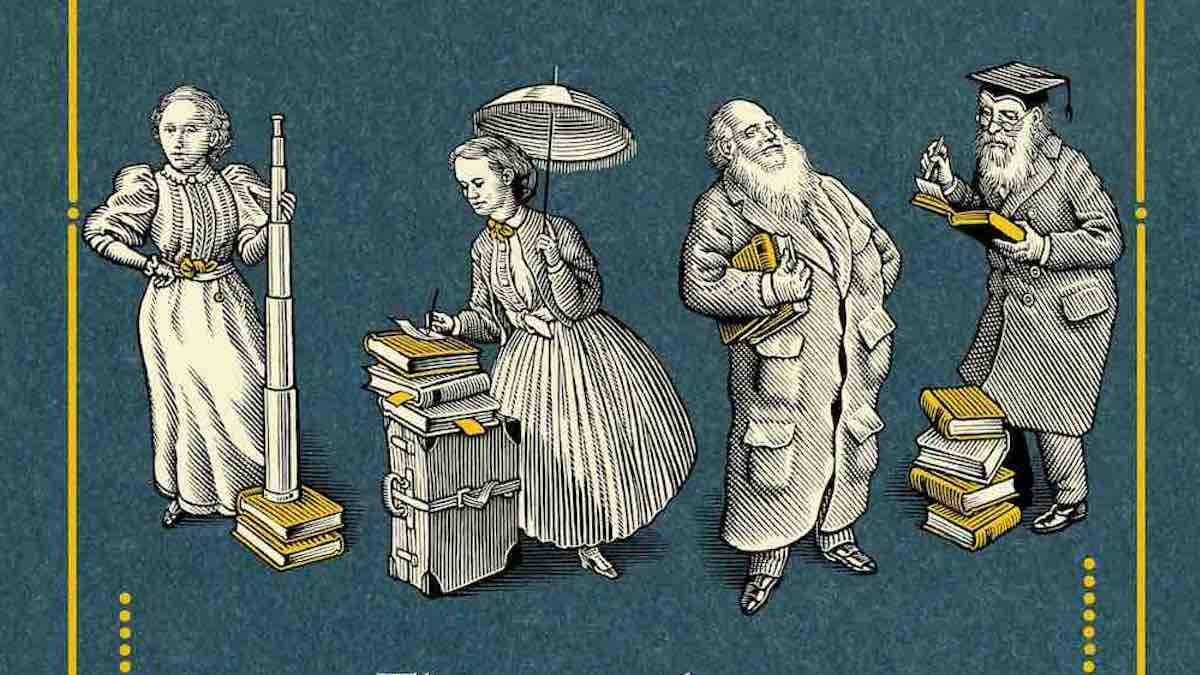Quirky, learned, fascinating, and deliciously readable.
Feature image credit: Penguin Books Australia
The Oxford English Dictionary (OED) is one of the most authoritative works on the English language ever published. It conjures up images of grizzled academics working away in dusty studies in the back streets of Oxford. And although that is certainly part of the picture, what is less well-known is the fact that much of its content was crowdsourced.
Thousands of individuals (and sometimes whole families) sent in “slips” to the dictionary, giving context and background to words from the vernacular to the highly technical. Sarah Ogilvie, who has worked for the OED, discovered the address book which contained the details of many of these so-called “readers,” and the culmination of her research is this delightful book.
The Dictionary People is a homage to words, to obsession, and to people in all their eccentric glory. Contributors included murderers, inmates in lunatic asylums (as they were then known), famous scientists and academics, suffragists, and even a suspected cannibal. Ogilvie paints a detailed picture of Victorian and Edwardian (the dictionary took decades to complete) life, including politics, social movements, sexuality, family relationships, and intellectual trends. And all of these threads are held together by the weft of language itself. The OED embraced, and continues to embrace, words borrowed from other languages, non-English words sometimes used in English, obscure technical and scientific terms, words only found in arcane literature, and words from dialectic English. Many of the Readers had their specific areas of interest. Edward Morris, for instance, sent in so many words from Australia and New Zealand that he eventually published his own work, Austral English, in 1898. Prince Louis Lucien Bonaparte (nephew of!) specialized in regional British accents, and was also an advocate for Glossotype, a form of phonetic English spelling. Henry Spencer Ashbee sent in words related to sex, genitals, and flagellation, and also managed to find the vulgar meaning of the most ordinary words (he must have been a hoot at dinner parties). Jennett Humphreys was doing historical research on cookery, sending in 500 slips alone just from Hannah Glasse. At 18,700 slips, she was the most prolific female contributor to the dictionary.
English is a living language, constantly changing. The OED was the first comprehensive descriptive (as opposed to prescriptive) dictionary of the English language, and it embraced this organic approach to philology, due in no small part, to this crowdsourcing.
Ogilvie writes with passion, enthusiasm, humour, and humanity. The Dictionary People is a worthy addition to anyone’s philological bookshelf, but is also, and most importantly, a stonkingly good read. Even if linguistics is not one of your listed hobbies, you will not regret delving into the pages of this constantly surprising and fascinating book.
Reviewed by Tracey Korsten
Twitter: @TraceyKorsten
The views expressed in this review belong to the author and not Glam Adelaide, its affiliates, or employees.
Distributed by: Penguin Books Australia
Released: September 2023
RRP: $35.00





















